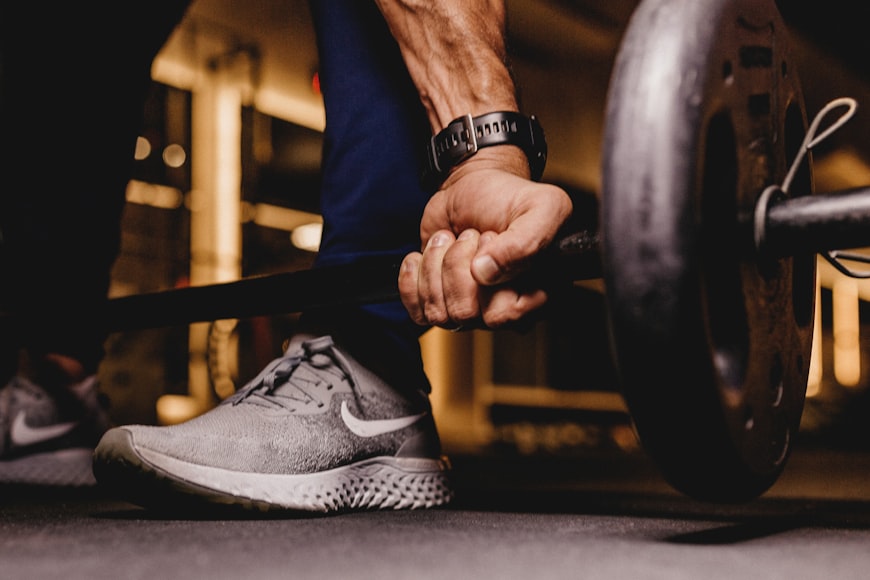When you first start working out on a strength training program, you’re putting a brand new type of stress on your body. That’s hard work. As you continue, though, you’d think that it would get easier. But often that is not the case. In fact, it can seem as if the workouts are getting harder and harder each time you hit the gym. In this article, I’ll uncover the 5 key reasons why it seems that your workout is getting harder – and provide some tips to overcome the problem.
You Are Overtraining

Many people throw themselves into working out with a ton of enthusiasm and energy. They train every day for more than an hour, with a workout plan that sees them hitting their body parts with intense training multiple times per week. They then try to keep going with this heavy training volume schedule. While this type of exercise certainly stimulates the muscles of their body, it fails to provide the one vital ingredient that is needed for progress – rest.
Rest and recovery are the keys to a successful training plan, whether your goal is to build muscle mass, lose fat or get stronger. If you do not give your muscles enough time to recover, you’ll get weaker and smaller rather than bigger and stronger. And you will be running on an empty fuel tank. When you are in that state, it’s no wonder that your workouts will be getting harder and harder.
When you are working out, you are placing stress on your muscle fibers. Train hard enough and you will actually cause micro-tears in those fibers. In order to grow, the muscle needs time after the workout to rest and recuperate. So long as you put the right nutrients into your body, it will also be able to regrow so that it is a bit stronger and bigger than it was before.
In order to ensure that you are not overtraining, you should only work a body part once every 4-5 days. Take a couple of days of complete rest periods from working out every week as well to give extra time for recovery.
You’re Not Eating Right

The energy to fuel your workouts comes directly from the foods that you put into your body. If you seem to be dragging yourself through your training session, you need to take a look at what you are eating before the workout.
A couple of hours before heading to the gym, you should have a whole food meal that is about 60% carbohydrates and 30% protein, with the final 10% coming from healthy fats. The carbohydrates should come from low glycemic foods such as sweet potatoes and squash. This will provide a medium rate release of carbs that will deliver a steady supply of glucose during the time that you are in the gym.
Your protein content should come from a lean source such as chicken breast or fish. Get your fats from nuts such as walnuts, avocado, or coconut oil.
After 20 minutes before going to the gym, you should have fast-acting carb food. The ideal option here is a banana. This will top up your glycogen levels to give you that immediate energy boost.
You may consider experimenting with a pre-workout energy drink but do not become reliant on it. Whole foods should form the basis of your workout energy needs.
You Are Dehydrated

When your body is not getting enough water, you will experience an immediate drop-off in both energy and muscular strength levels. That is why you need to stay well hydrated before, during, and after your training session. You should drink about a quarter of a gallon of water in the 2 hours before you go to the gym.
While you are training, you should be constantly sipping from your water bottle between sets. If you are training in the heat of summer it is also a good idea to fortify your water with some electrolytes. This will allow you to replace the electrolytes that are lost with your sweat.
Lack of Training Variety

The reasons that your training is getting harder might not just be due to the physical effects on your body of overtraining and not getting the proper nutrients and water into your body. It could also be due to what’s going on in your mind. Unless you are mentally tuned in to your workout, you are going to struggle to get through your training session.
Lack of variety in your workout routine can lead to boredom and monotony. You’ll end up just going through the motions with no enthusiasm or energy. That is definitely not the way to get results.
To keep your mind in the game, you should change up your training routine every 6-8 weeks. Try different types of workouts, different rep schemes, and different training protocols, like supersets and drop sets. You should also explore all of the different training regimen options that are available at the place where you work out. If your gym has a range of group classes, experiment with them to see which ones gel best with you.
You should also try out the functional training area of the gym. This will add a whole new dimension to your training experience.
Too Hard, Too Fast
A final reason that your workouts may seem to be getting harder is that you are trying to do too much too soon. If you try to lift weights that are beyond your current capabilities, you will end up disappointed. At best you will find yourself cheating to get a heavier weight up and, at worst, you’ll suffer a potentially debilitating injury.
The key to success with your weight lifting workouts is progressive resistance. That means that you are constantly making small, incremental improvements in the amount of weight you are lifting and in the overall intensity of your workout. So, rather than trying to add an extra 20 pounds to your lift, start by pushing out a few more reps. Then, depending on the exercise, but the weight up by 2-5 pounds and drop the reps back. Continue in this manner to make incremental steady, safe major muscle gains with progressive overload training. That way you will be able to get in a high-intensity exercise tough workout that doesn’t lead to overtraining.
Conclusion
While your workouts need to be hard to make progress, they should not feel more exhausting and difficult each time you hit the gym. Make an application of the 5 fixes presented in this article to refresh your workouts and avoid getting to that place where your workouts are getting harder with no benefit to your body.
Frequently Asked Questions
How can I avoid overtraining?
You can avoid overtraining by scheduling in rest intervals, not training a body part more than once every 4-5 days, and supplying your body with the carbs, proteins, and fats it needs before, during, and after the workout.



